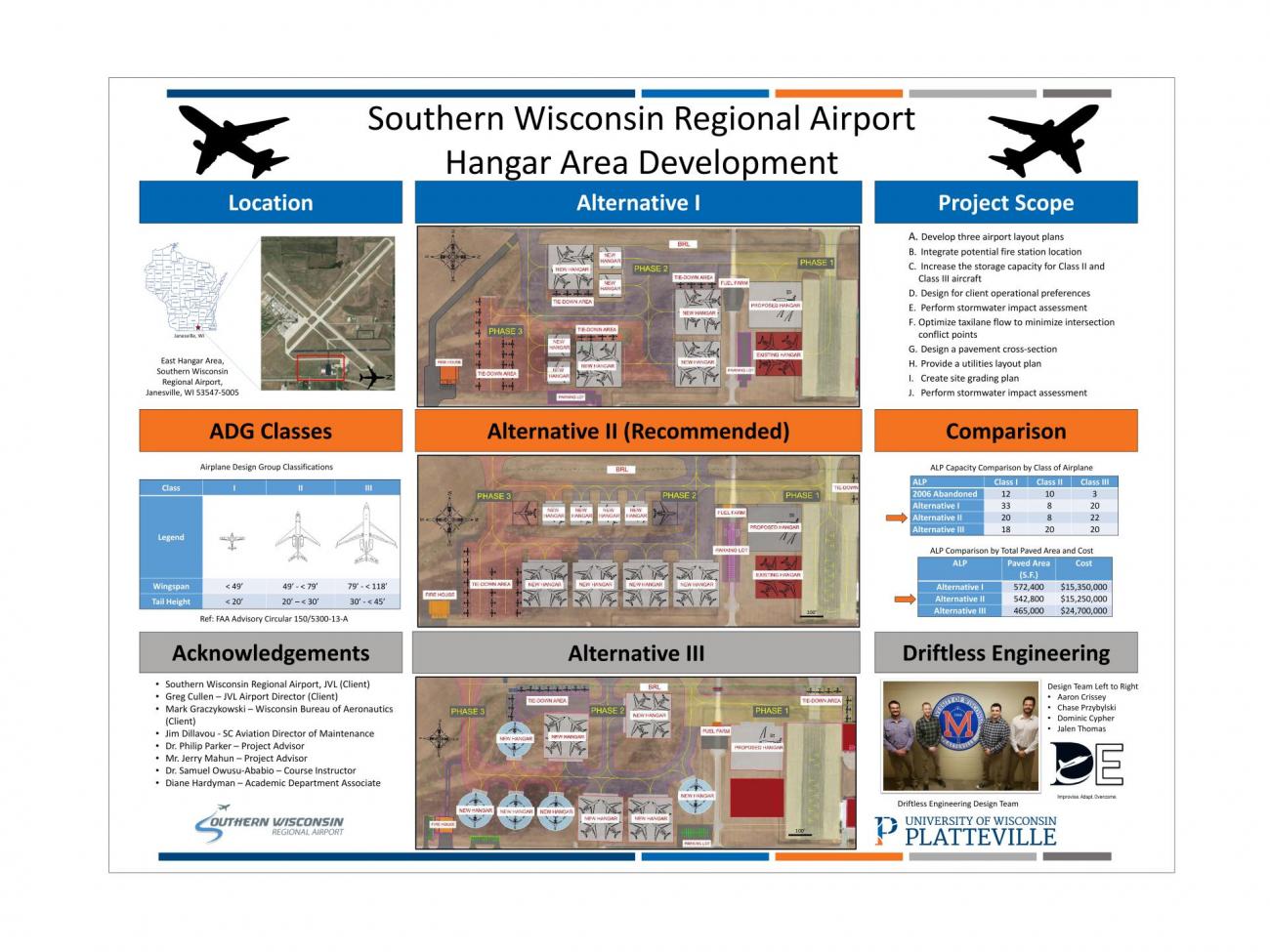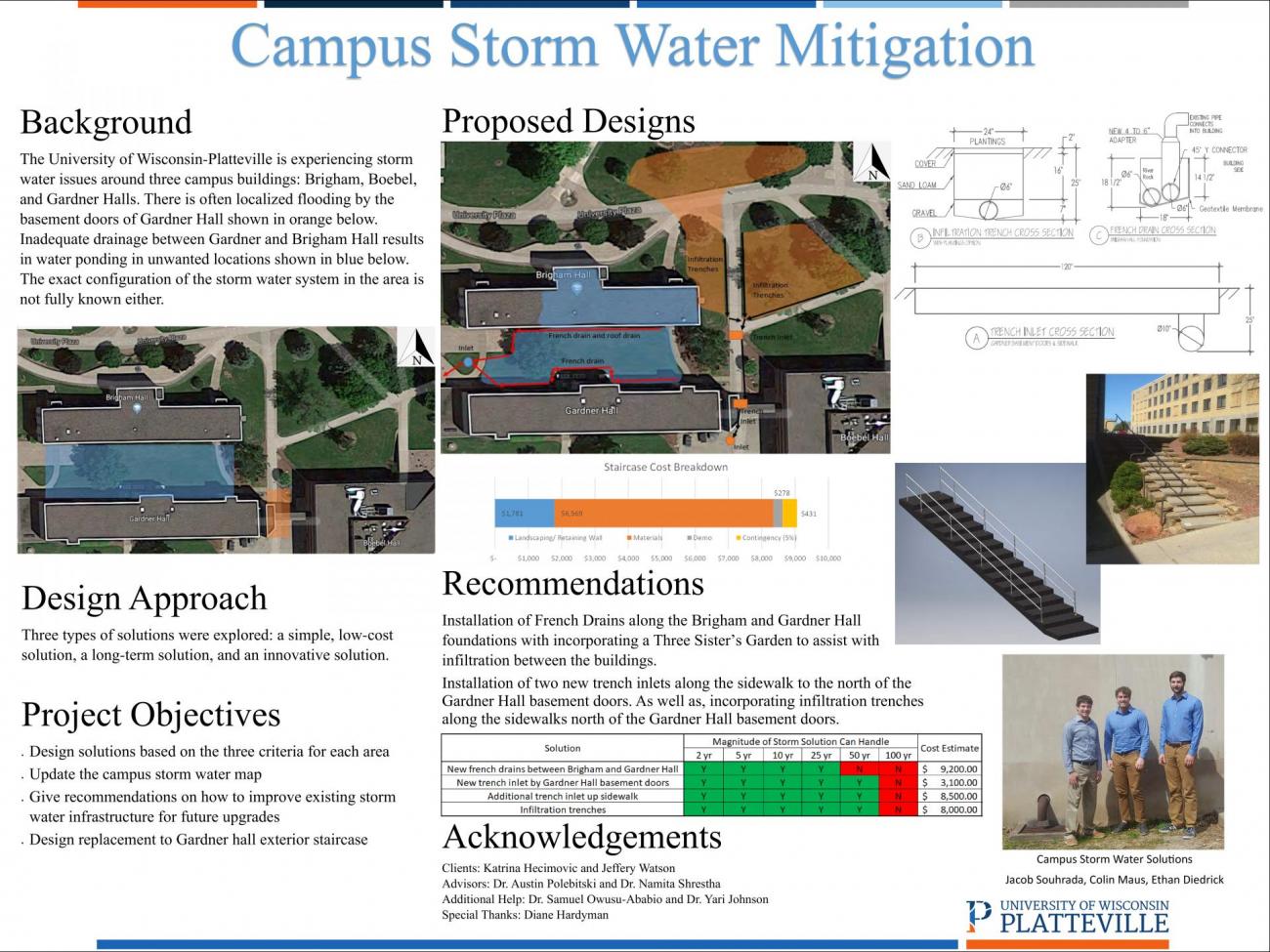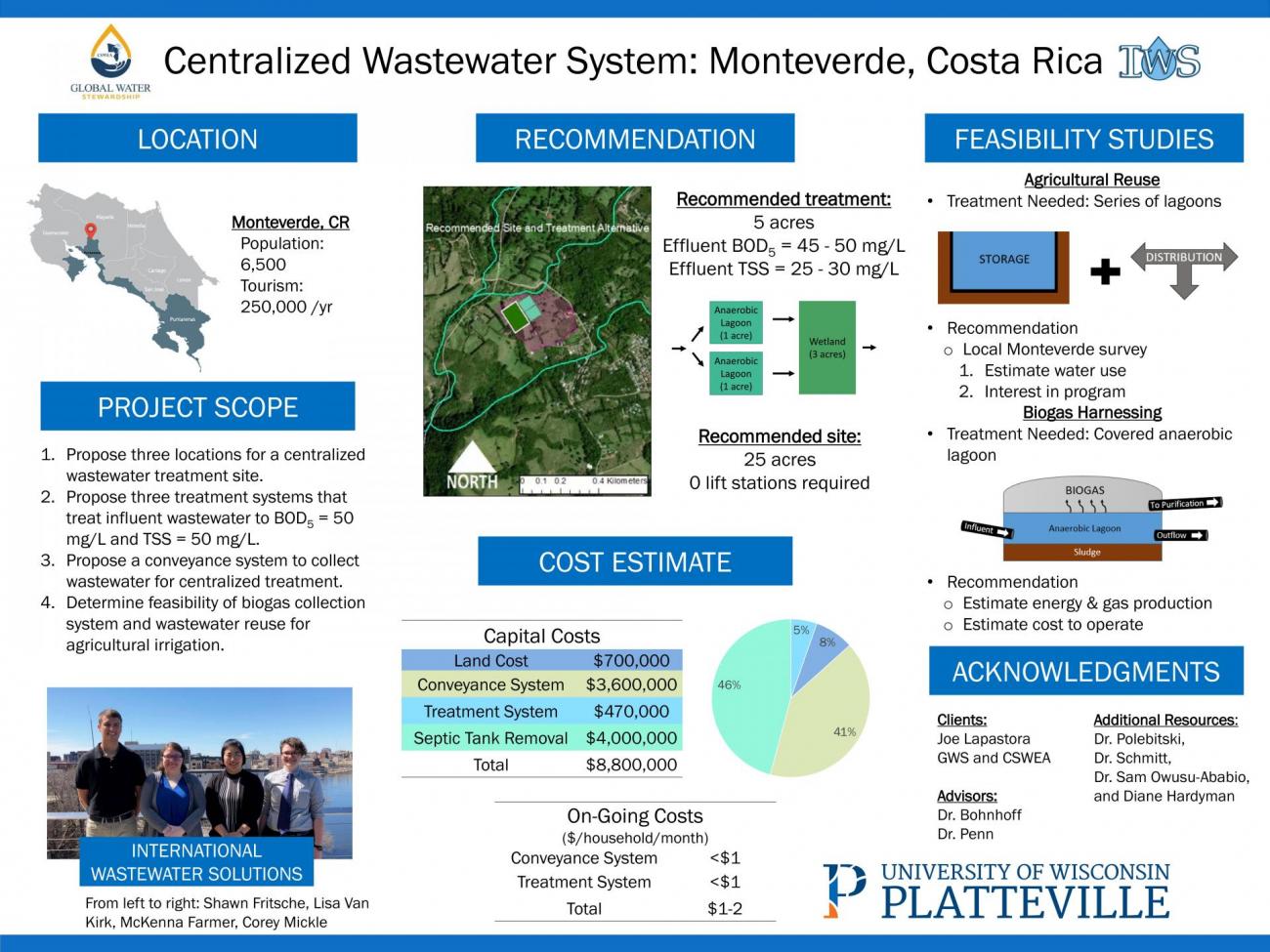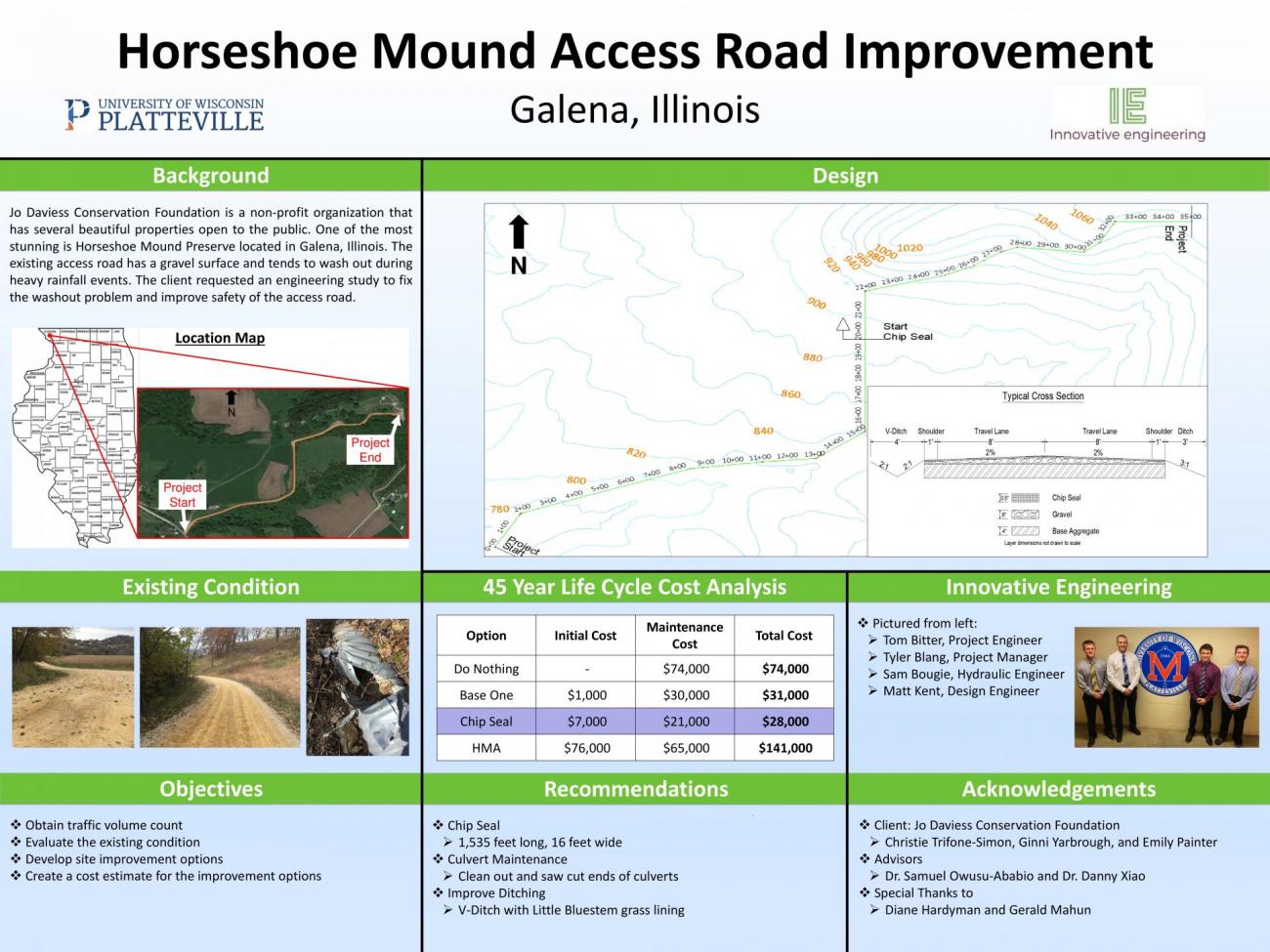Senior Design
The focus of the Senior Design course is for you to manage and complete a real project under real world constraints. In essence it is "Real Projects, Real People, Real Solutions." Different projects are offered each semester, covering the different emphasis areas in civil or environmental engineering. Projects are allocated to student teams according to the emphasis areas of the students.
The management of the course is student-centered, which credits engineering seniors with intelligence, maturity, motivation, and common sense. Decisions are made within the team. Team members take responsibility for completion of the project. Each design team consists of student members who work under the supervision of project advisor(s) and course Instructor(s). Each team selects a project manager, a key position as this person is responsible for coordination, scheduling, and getting the project completed on time. Other members are assigned specific parts/tasks of the project for in depth analysis.
Each design team is assigned two faculty members that serve as project advisors. These are the primary “expert resources” for the students. Additionally, project advisors approve the scope of the project and play a significant role in determining the final grade. Project advisors provide guidance and support, but it is the responsibility of the students to make decisions, set up meetings, interact with the clients, and become experts of their project.
The Senior Design course is a capstone design experience with the purpose to:
- Involve students in the conception, planning, and design of a civil or environmental engineering project.
- Provide an integration of information, ideas, and concepts from previous courses into a comprehensive design effort.
- Provide a transition from the academic world to that of professional practice. The participation of individuals from outside the university community (e.g. local government, consulting firms, and private organizations) is essential for this purpose.
- Foster teamwork and coordination of the efforts of all team members toward a common goal.
- Discuss issues related to the practice of civil and environmental engineering, such as ethics, project management, and social and environmental impact.
- Provide students with an open-ended project for which no optimal solution is known at the start of the semester.
- Meet a minimum technical threshold based on the project advisors’ input.



